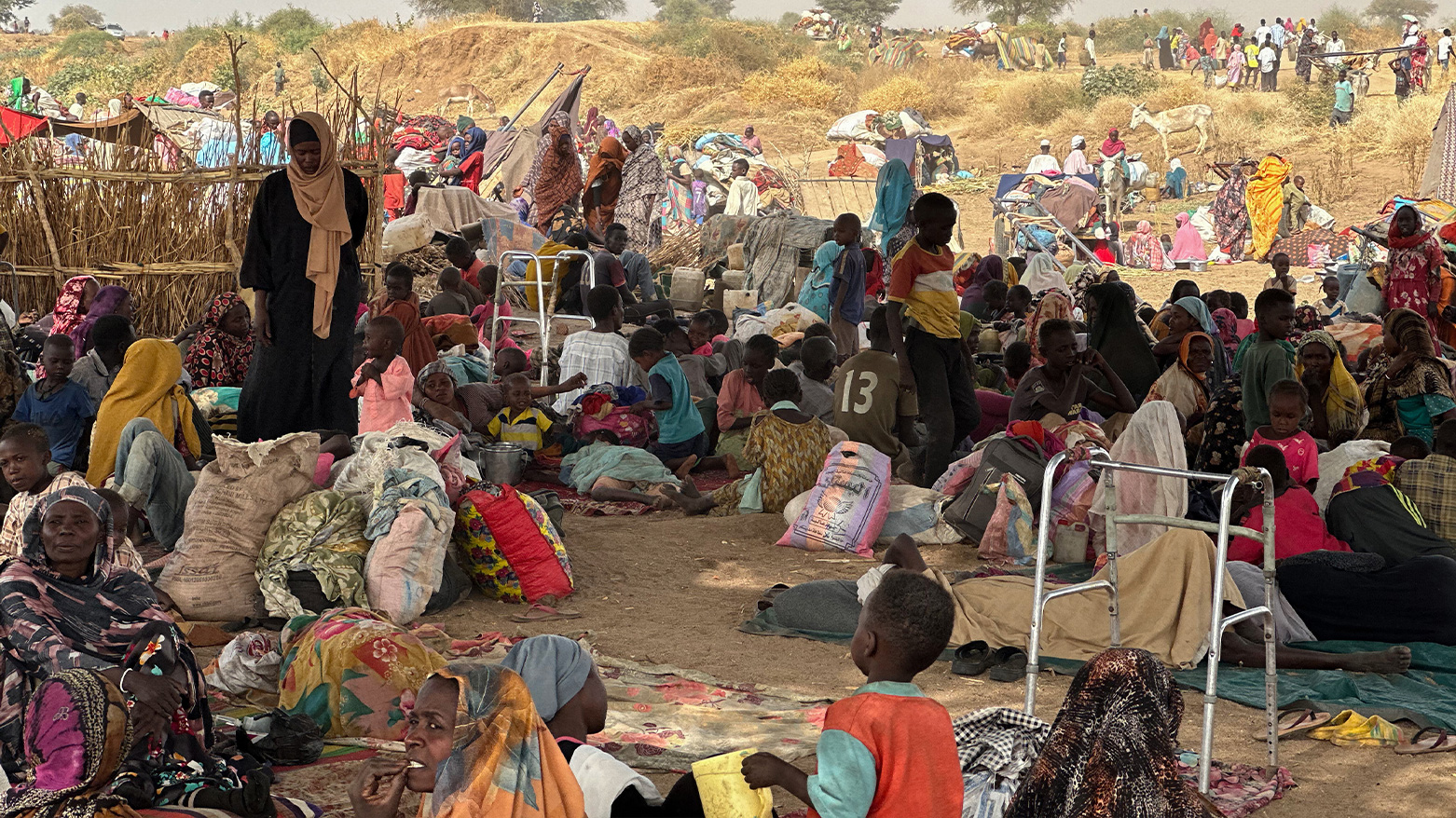Africa’s Forgotten War: 13 Million Displaced, and Counting
“Sudan is bleeding. Its people have been suffering for too long,” said Filippo Grandi, the UN High Commissioner for Refugees. “Civilians are being bombed every day. Millions are trapped between conflict, neglect and the dilemma of flight.”

By Kamaran Aziz
ERBIL (Kurdistan24) — The head of the UN Refugee Agency issued a grim warning on Tuesday, describing Sudan as the world’s most catastrophic humanitarian and displacement crisis, now entering its third year with little sign of relief and waning international attention.
“Sudan is bleeding. Its people have been suffering for too long,” said Filippo Grandi, the UN High Commissioner for Refugees, in a powerful statement released on Tuesday. “Civilians are being bombed every day. Millions are trapped between conflict, neglect and the dilemma of flight.”
Since April 2023, Sudan has been engulfed in a devastating civil war that has displaced nearly 13 million people. Over 4 million have crossed into neighboring countries such as Egypt, South Sudan, Chad, Libya, Ethiopia, the Central African Republic, and Uganda, making Sudan the African country with the largest number of people displaced as refugees. Inside Sudan, millions more remain displaced amid widespread violence, crumbling infrastructure, and limited humanitarian access.
The UNHCR reports a significant deterioration of the humanitarian situation, compounded by extreme funding shortfalls. As of April 2025, funding for the regional response is below 10 percent of what is needed, drastically limiting efforts to provide food, clean water, medical care, and shelter. “We will struggle to alleviate the suffering,” Grandi warned. “Supplies of food and medicine are dwindling. Shelter is already rudimentary. We cannot move refugees to safer areas.”
UNHCR spokesperson Olga Sarrado Mur added during a recent briefing in Geneva that the agency is facing “the worst humanitarian funding situation in decades.” The lack of resources is forcing critical programmes to scale down or close entirely, leaving tens of thousands of displaced people without access to basic services. In Uganda, refugee children face overcrowded schools, while girls risk early marriage and boys turn to dangerous migration paths in the absence of education.
Grandi, who recently returned from Chad, described the harrowing conditions at the border. “People I met at the border shared stories of experiences no one should have to live. Yet despite the pain, they told me they no longer felt in danger. That is the quiet strength of asylum,” he said. But that safety remains precarious, especially in overcrowded transit centers in South Sudan and Chad, where over 280,000 Sudanese refugees are stranded in makeshift shelters without adequate protection.
In North Darfur, recent brutal attacks—including the killing of aid workers—have further inflamed the crisis and highlighted the blatant disregard for humanitarian law. Many newly arrived refugees report systemic sexual violence, mass killings, and separation from family. Half of all displaced persons are children, including thousands who are unaccompanied.
While a lull in fighting in Khartoum has allowed some families to return, the numbers remain small and their needs immense. UNHCR and its partners are scaling up operations in cities like Khartoum, Omdurman, Wad Madani, and Jazeera State, but warn that the destruction of infrastructure and essential services makes return extremely difficult without sustained support.
Grandi also expressed deep concern over the international community’s silence. “They face indifference from the outside world, which for the past two years has shown scant interest in bringing peace to Sudan or relief to its neighbours.” The lack of global engagement is straining host nations that continue to bear the brunt of the refugee influx.
“The stability of the entire region is threatened,” Grandi said. “There is not just an urgent need for humanitarian protection, but also for development aid so that host governments can offer refugees and their own people better futures. They need an investment in peace, prosperity and stability, and they need it now.”
The emergency is reaching beyond Africa. Sudanese refugees are now arriving in Uganda and making perilous journeys through Libya toward Europe. While arrivals remain modest, there has been a 38 percent year-on-year increase in the first two months of 2025 alone, underscoring growing desperation.
Despite the dire circumstances, neighboring countries have kept their borders open, with local communities sharing what little they have. UNHCR and its partners continue to operate under immense constraints to provide emergency support. However, the mounting pressures threaten to collapse fragile systems unless greater international development funding is secured.
In closing, Grandi made an impassioned plea: “After two years of unrelenting suffering, the world can no longer afford to ignore this emergency. We must make every effort to bring peace to Sudan. Humanitarian and development support must be stepped up. Continuing to look away will have catastrophic consequences.”
As Sudan teeters on the edge, the voices from its borders and its battered cities are a stark reminder of what is at stake—not only for Sudan, but for the stability of an entire region and the conscience of the world.